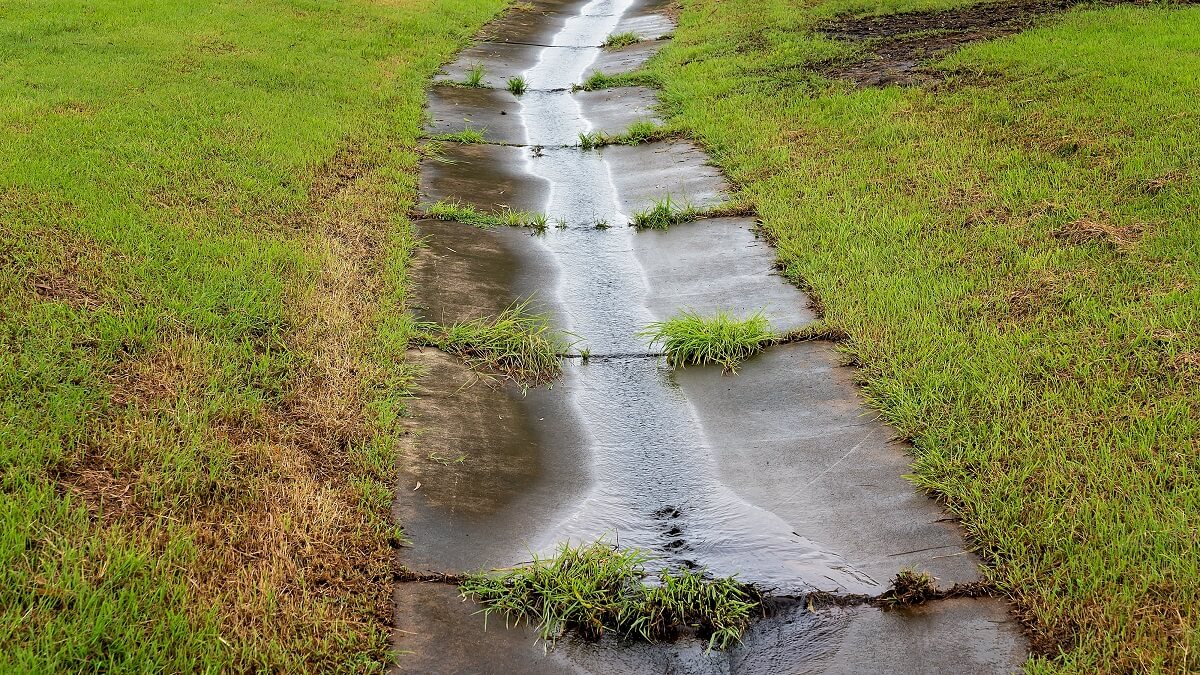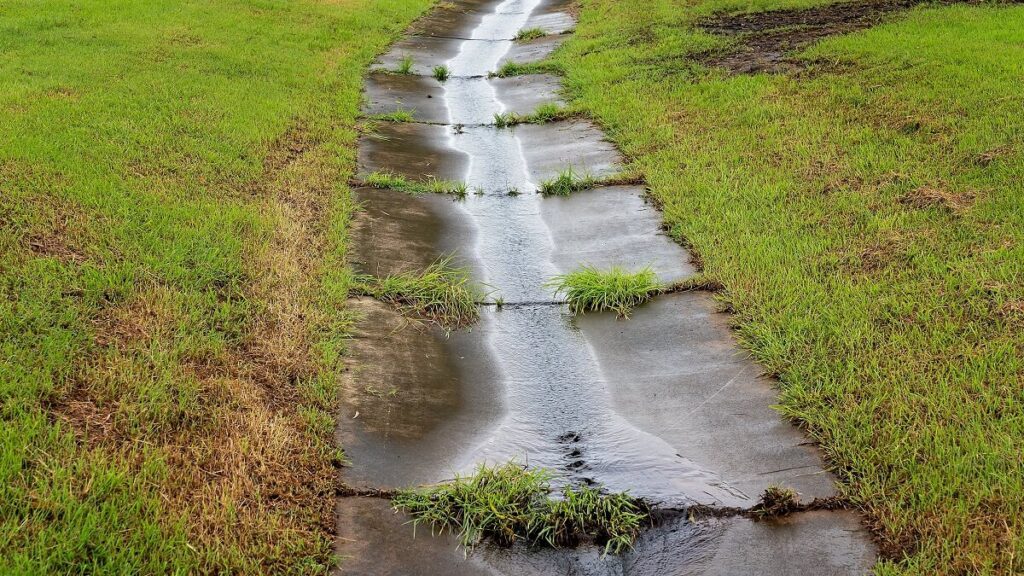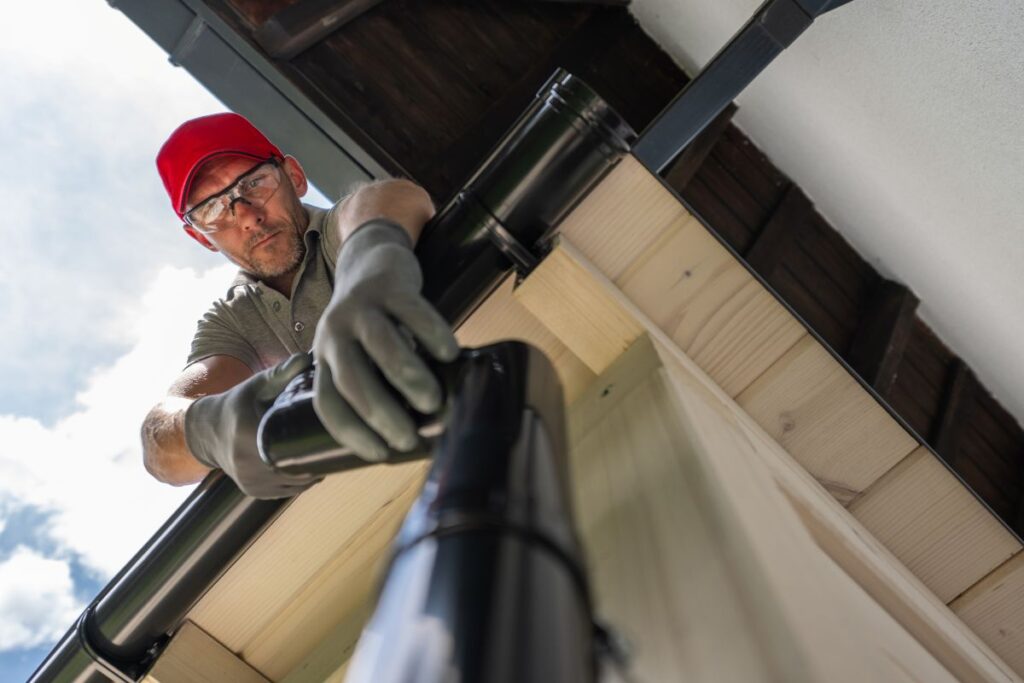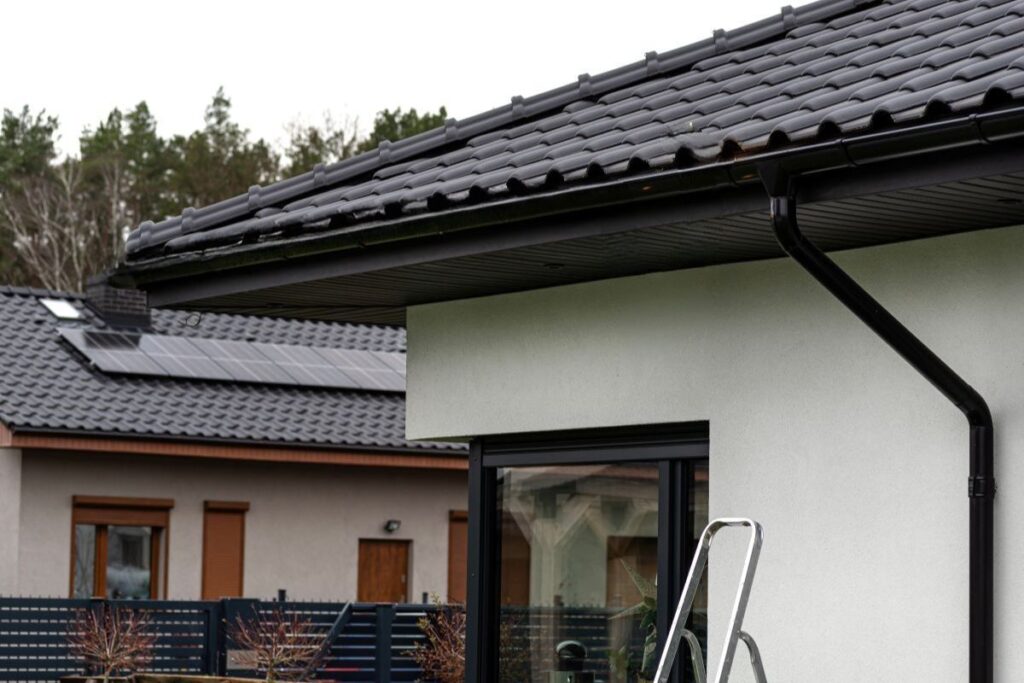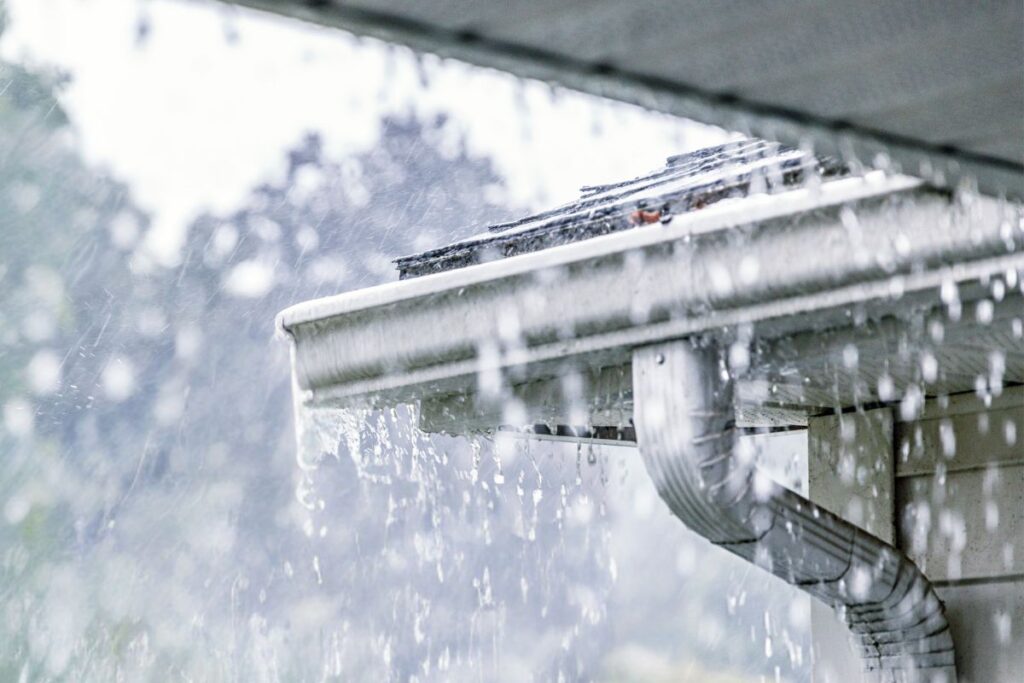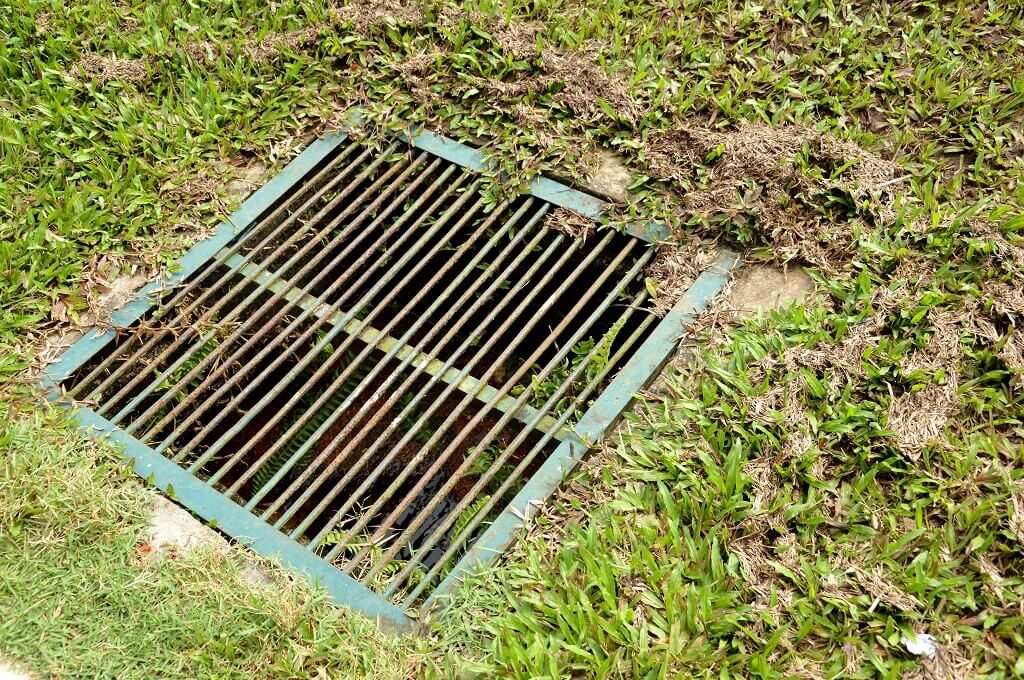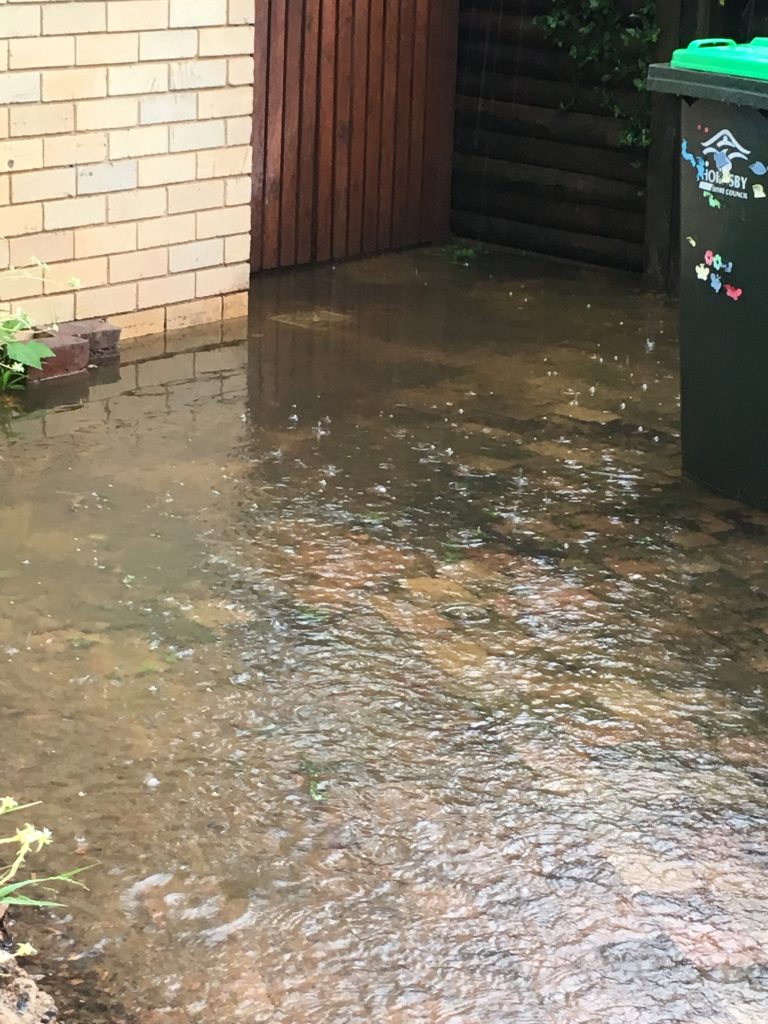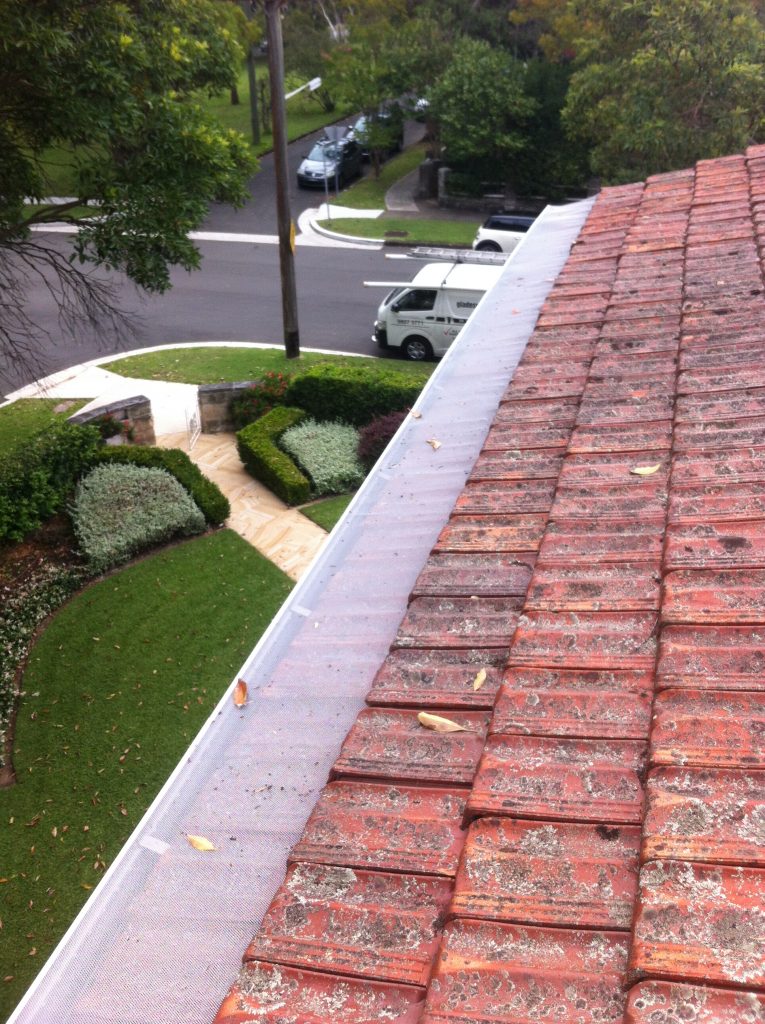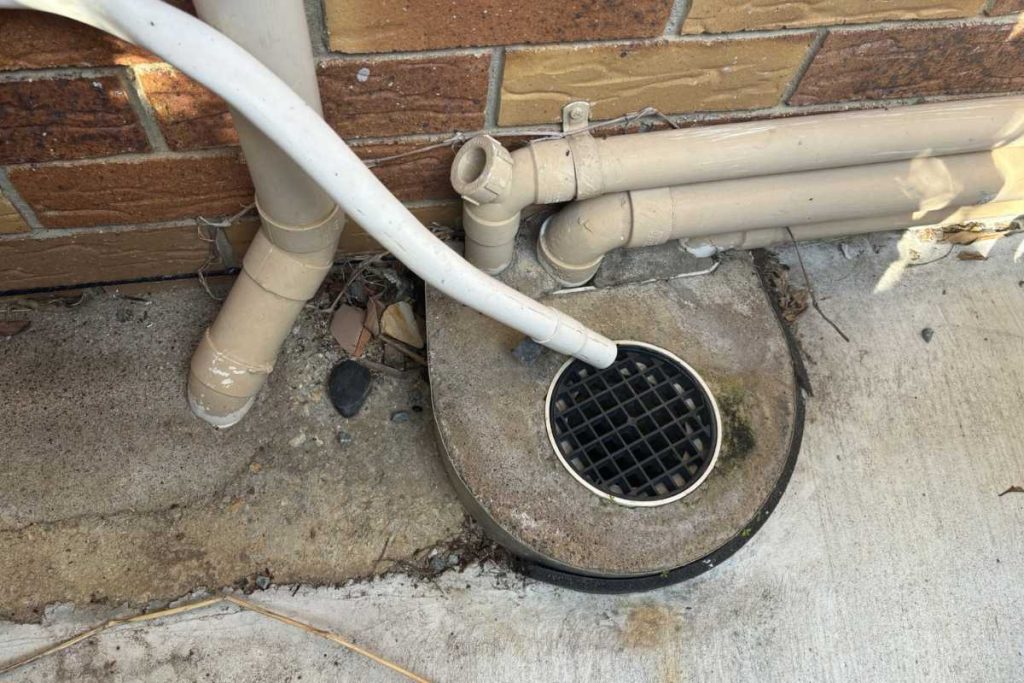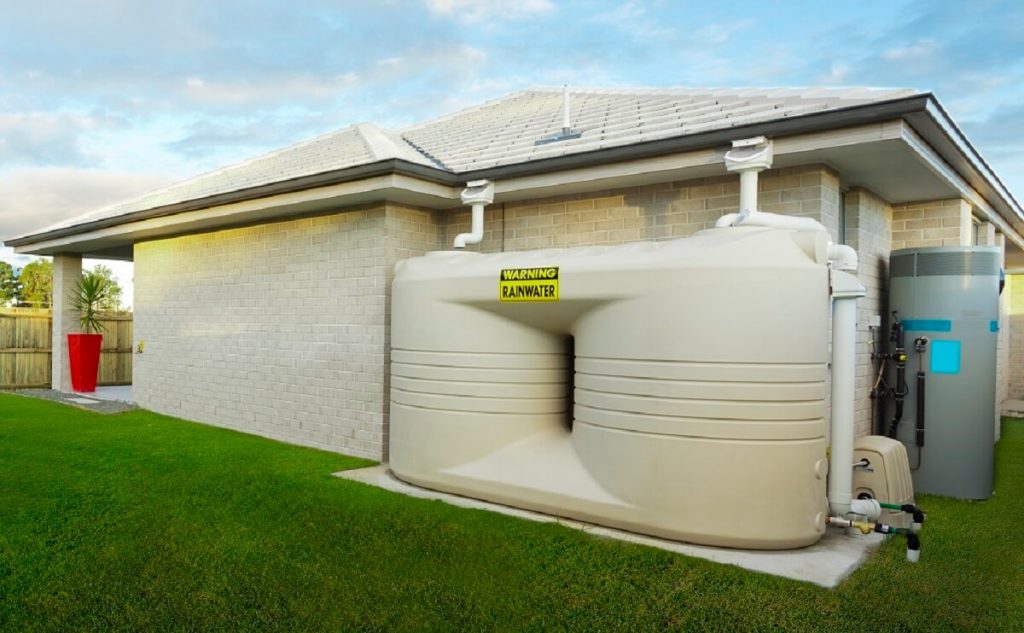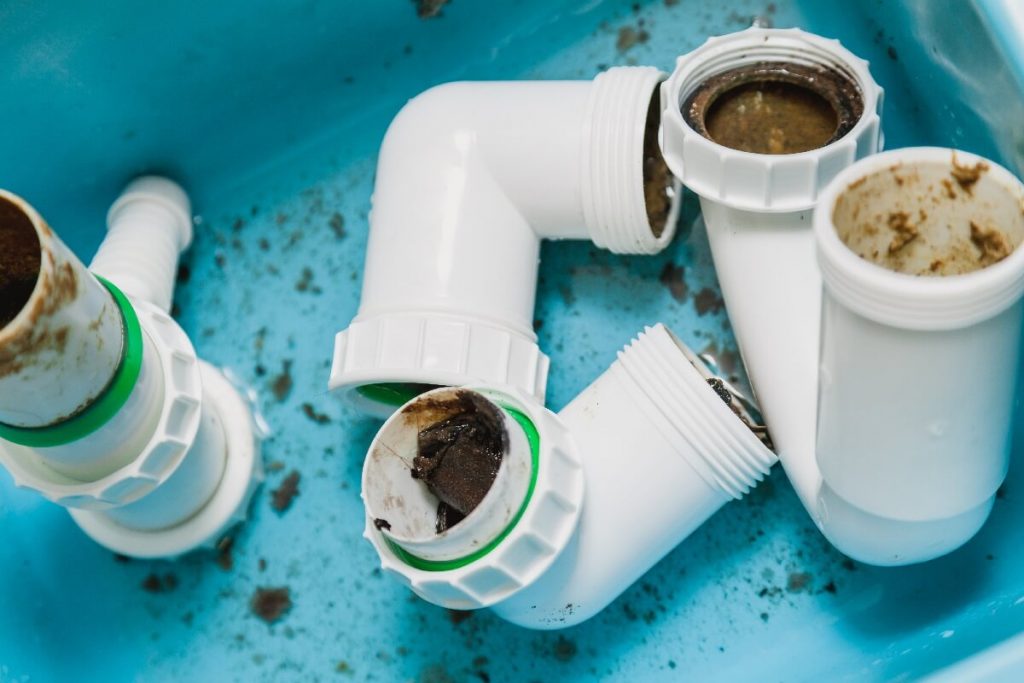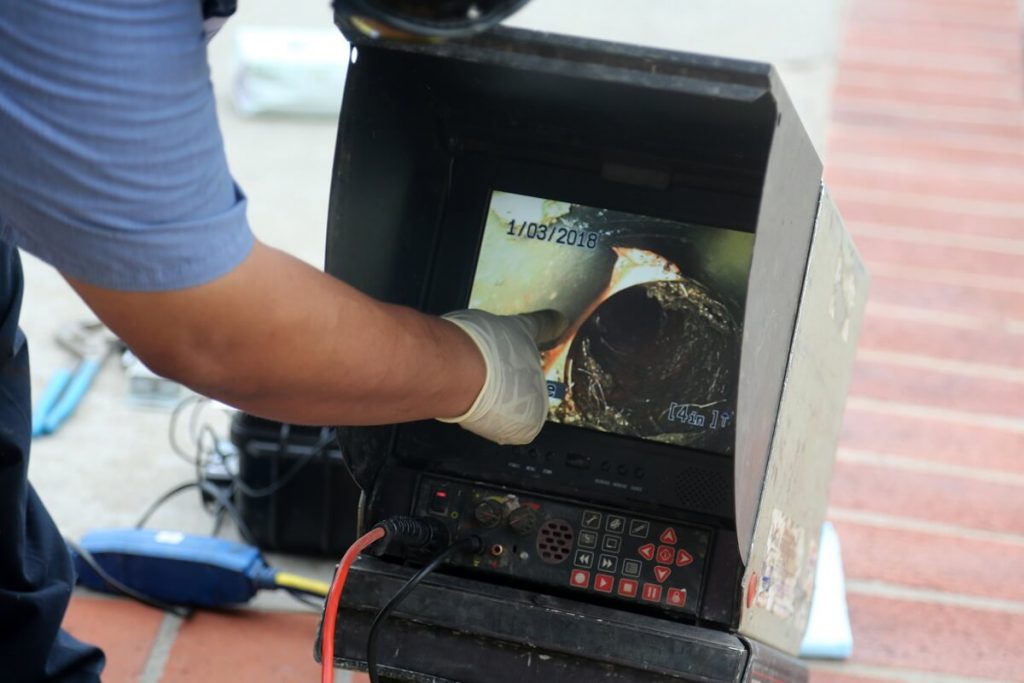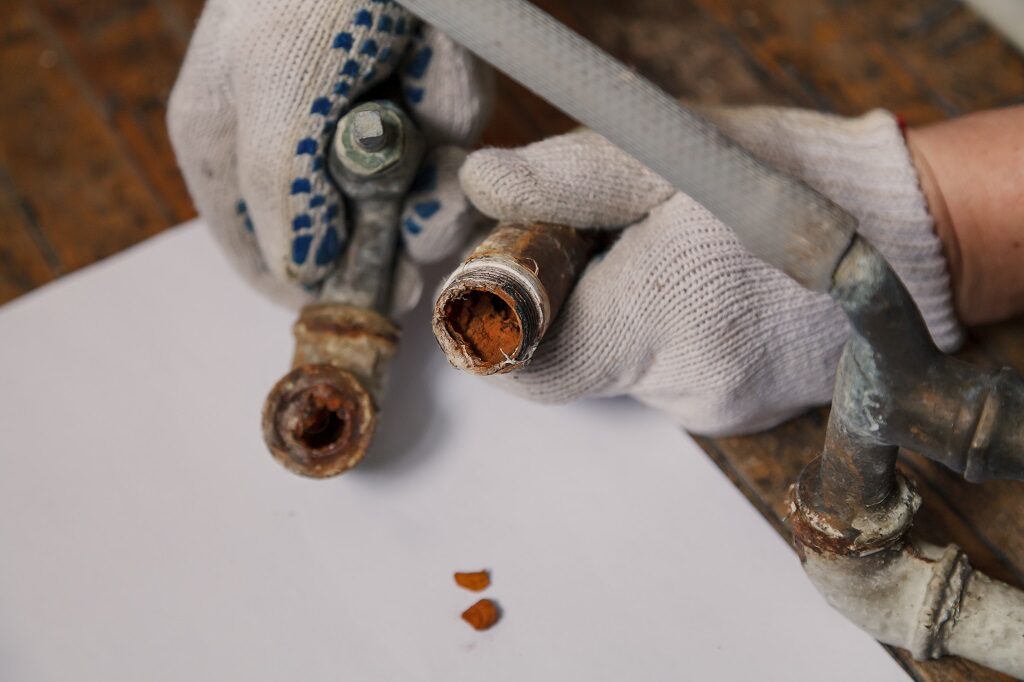Installing a Spoon Drain – Do You Need a Plumber?
The lack of outdoor drainage to a home can cause water pooling and sometimes internal flooding during a severe rain event. A spoon drain can provide a pathway for water to flow away from your home to a lawful point of discharge.
This post explains what a spoon drain is, whether it’s a drain you can install yourself, and the alternatives which may suit your property better.
What is a spoon drain and how does it work?
A spoon drain is made from concrete which is installed in line with the ground surface. It catches water before it soaks into the ground. The inverted angle of the spoon drain will direct rainwater away from neighbouring properties.
Open stormwater drains are common in wide-spaced areas and will follow the topography of the land where rainwater would usually settle once fallen.
In residential homes, spoon drains aren’t as commonly installed. Most modern homes will have an underground storm water drainage system set up using ag pipe. Typically, the down pipes will connect to ag pipe underground and this will connect to a grated box drain. The box drain will then direct water away from the home to the main storm water pipe servicing the street.
Who can install a spoon drain?
An open drain can be a DIY project and won’t require a plumber to install.
However, there should be considerations before installation. You want to ensure the spoon drain has fall and will direct water away to where it needs to go and not create further pooling in your backyard.
While cement is easy to lay, you don’t want it to become an eyesore in your backyard. Some homeowners have opted for a pebbled spoon drain to naturally accent the garden. Cement will allow the water to run faster though.
Covered plastic spoon drainage is another option that homeowners often choose to buy from the hardware store and DIY install. If you do choose to go with this option you will need to be mindful where you intend directing the excess water to (ie a drainage pit or existing stormwater system).
It’s also important to check with your local council on what is an approved way to direct water run-off from your home. Your local licensed plumber will give you the information you need and can even advise on the best plan to protect your home from water pooling.
What are the alternatives to spoon drains?
If your property doesn’t have a wide space, an open drain may not be the best solution for your stormwater woes.
Ensuring your roof space has adequate downpipes which are connected to an underground stormwater system may be a better approach. This type of installation is less intrusive to your gardens and grassed areas.
Both drains still require regular maintenance. Blockages can occur if the gutters aren’t regularly cleaned. Spoon drains can be blocked by debris but this can be easily removed.
If you know your property needs more stormwater drainage installation, contact Gladesville Plumbing. An inspection to your home can result in a tailored solution to prevent water pooling around your home.


